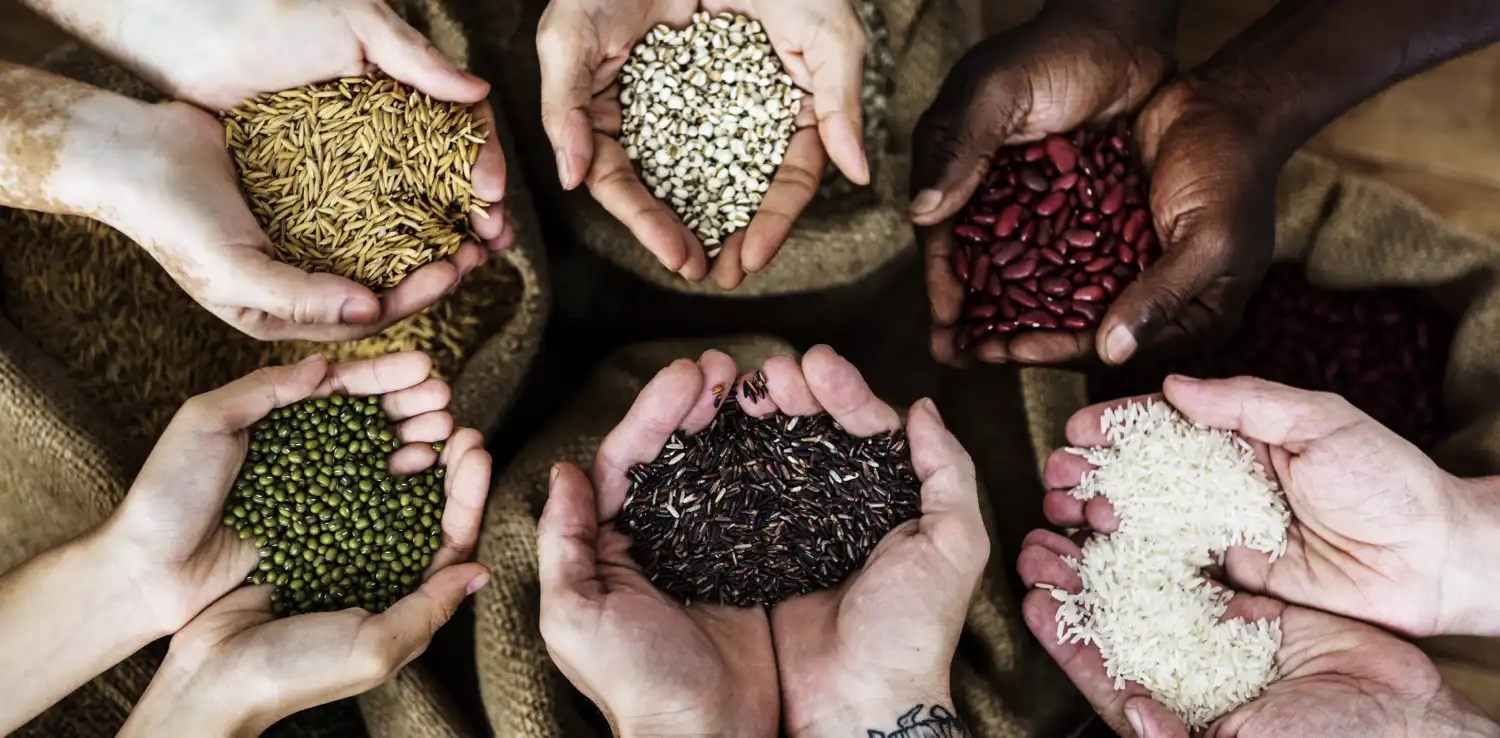5 Aspects of Better Food Systems for All

Photo: Freepik
Food is an essential part of our daily life. At the same time, food is at the center of one of the most pressing, persistent, and pervasive issues in society. In progressing toward a better world for all, we must consider the relevant factors that make for better, more sustainable food systems.
Inequality and Crisis
Issues in our food systems are interconnected, and so are the roots. While unequal distribution of resources is the main factor, other mutually reinforcing causes are economic shocks, conflicts, and extreme weather events due to climate change.
In 2022, about 783 million people worldwide might have suffered from hunger. Many of them were in a state of food crisis, in which they could barely meet minimum food needs after sacrificing other essentials.
Beyond simply having food, though, our bodies need the right amount of food with the right amount of nutrients. However, current policy commitments largely focus on food security and affordability. They are yet to address the environmental and health consequences of unsustainable food systems.
As a result, over 2.8 billion people cannot afford a healthy diet. Too many people, including children, are forced to rely on more convenient, more affordable foods that can be unhealthy. Meanwhile, many others do not have access to fresh or varied foods for a healthy diet. These unhealthy diets can lead to all forms of malnutrition, such as undernutrition, micronutrient deficiencies, and obesity.
Better Food Systems

Ensuring healthy food for all requires addressing the complexity of food systems. For instance, the differences between cultures, economic classes, and geographical locations can affect how people eat.
Among the many variables involved, here are five main aspects to consider in creating better, more sustainable food systems for all and how everyone can contribute:
1. Nutrition
Eating is not just about making our stomachs full. Consuming food is about fueling the body, giving it the necessary nutrients to function, grow, and stay healthy. Proper nutrition is especially vital for children to avoid waning and stunting that would impact them for life. Educating the public is a good first step. Additionally, putting nutrition at the core of food-related programs and policy interventions is fundamental.
2. Affordability
Price is, and has always been, the main reason most people opt for fast, ultra-processed foods over slow, real foods. So, providing nutritious food must go hand in hand with addressing inequality and ensuring food affordability for everyone. Some ways to do that are with free school meals, subsidies, and better incentives for healthy options. As individual consumers, opting for healthier options may create the market demand necessary to make them more affordable.
3. Accessibility
Access to affordable and nutritious food depends on many factors, such as geographical location and infrastructure support. For example, areas with better access to agricultural support or food-related initiatives are bound to experience better food systems in general. Therefore, improving access to reach even the most remote and marginalized people is crucial. From soup kitchens to government programs, individuals, civil society, businesses, and governments can contribute.
4. Diversity
Globally, over 10,000 of wild species are harvested directly for food. Besides consuming nutritious food, it is important to diversify our sources of food. With all the available vegetables, fruits, mushrooms, algae, beans, fishes, and even insects, we have a wide range of options for healthy diets. Moreover, thousands of cultures around the world provide us with diverse cuisines to share and enjoy. Diversifying food production and consumption is also necessary for long-term soil health.
5. Sustainability
Agriculture makes up the bulk of global food production. Unfortunately, current agrifood systems both cause and are vulnerable to climate change and environmental degradation. Crop-focused farming, industrial meat production, and destructive fishing techniques are some examples of harmful practices in food production. Additionally, the reduction and management of food loss and waste is also essential to the sustainability of food systems. From innovations in agriculture technology to behavior change in consumers, everyone must work hand in hand to achieve more sustainable and inclusive food systems that are better for people and the planet.

Co-create positive impact for people and the planet.
Amidst today’s increasingly complex global challenges, equipping yourself, team, and communities with interdisciplinary and cross-sectoral insights on sustainability-related issues and sustainable development is no longer optional — it is a strategic necessity to stay ahead and stay relevant.


 Indian Gig Workers Push Back Against 10-Minute Delivery Service Strain
Indian Gig Workers Push Back Against 10-Minute Delivery Service Strain  Call for Governance: Grassroots Initiatives Look to Scale Efforts to Conserve Depleting Groundwater
Call for Governance: Grassroots Initiatives Look to Scale Efforts to Conserve Depleting Groundwater  Integrating Environment, Climate Change, and Sustainability Issues into Education Systems
Integrating Environment, Climate Change, and Sustainability Issues into Education Systems  Finally Enforced: Understanding the UN High Seas Treaty
Finally Enforced: Understanding the UN High Seas Treaty  Risks and Opportunities of Submarine Communication Cables for Sustainable Development
Risks and Opportunities of Submarine Communication Cables for Sustainable Development  Rising Attacks and Violence Against Land and Environmental Defenders
Rising Attacks and Violence Against Land and Environmental Defenders